CHAPTER IV.
您可以在百度里搜索“Pierre: Or, The Ambiguities 艾草文学(www.321553.xyz)”查找最新章节!
CHAPTER IV.
HIS stroll was longer than he meant; and when he returned up the Linden walk leading to the breakfast-room, and ascended the piazza steps, and glanced into the wide window there, he saw his mother seated not far from the table; her face turned toward his own; and heard her gay voice, and peculiarly light and buoyant laugh, accusing him, and not her, of being the morning's laggard now. Dates was busy among some spoons and napkins at a side-stand.
Summoning all possible cheerfulness to his face, Pierre entered the room. Remembering his carefulness in bathing and dressing; and knowing that there is no air so calculated to give bloom to the cheek as that of a damply fresh, cool, and misty morning, Pierre persuaded himself that small trace would now be found on him of his long night of watching.
'Good morning, sister;—Such a famous stroll! I have been all the way to—— '
'Where? good heavens! where? for such a look as that!—why, Pierre, Pierre? what ails thee? Dates, I will touch the bell presently.'
As the good servitor fumbled for a moment among the napkins, as if unwilling to stir so summarily from his accustomed duty, and not without some of a well and long-tried old domestic's vague, intermitted murmuring, at being wholly excluded from a matter of family interest; Mrs. Glendinning kept her fixed eye on Pierre, who, unmindful that the breakfast was not yet entirely ready, seating himself at the table, began helping himself—though but nervously enough—to the cream and sugar. The moment the door closed on Dates, the mother sprang to her feet, and threw her arms around her son; but in that embrace, Pierre miserably felt that their two hearts beat not together in such unison as before.
'What haggard thing possesses thee, my son? Speak, this is incomprehensible! Lucy;—fie!—not she?—no love-quarrel there;—speak, speak, my darling boy!
'My dear sister,' began Pierre.
'Sister me not, now, Pierre;—I am thy mother.'
'Well, then, dear mother, thou art quite as incomprehensible to me as I to—— '
'Talk faster, Pierre—this calmness freezes me. Tell me; for, by my soul, something most wonderful must have happened to thee. Thou art my son, and I command thee. It is not Lucy; it is something else. Tell me.'
'My dear mother,' said Pierre, impulsively moving his chair backward from the table, 'if thou wouldst only believe me when I say it, I have really nothing to tell thee. Thou knowest that sometimes, when I happen to feel very foolishly studious and philosophical, I sit up late in my chamber; and then, regardless of the hour, foolishly run out into the air, for a long stroll across the meadows. I took such a stroll last night; and had but little time left for napping afterward; and what nap I had I was none the better for. But I won't be so silly again, soon; so do, dearest mother, stop looking at me, and let us to breakfast.—Dates! Touch the bell there, sister.'
'Stay, Pierre!—There is a heaviness in this hour. I feel, I know, that thou art deceiving me;—perhaps I erred in seeking to wrest thy secret from thee; but believe me, my son, I never thought thou hadst any secret thing from me, except thy first love for Lucy—and that, my own womanhood tells me, was most pardonable and right. But now, what can it be? Pierre, Pierre! consider well before thou determinest upon withholding confidence from me. I am thy mother. It may prove a fatal thing. Can that be good and virtuous, Pierre, which shrinks from a mother's knowledge? Let us not loose hands so, Pierre; thy confidence from me, mine goes from thee. Now, shall I touch the bell?'
Pierre, who had thus far been vainly seeking to occupy his hands with his cap and spoon; he now paused, and unconsciously fastened a speechless glance of mournfulness upon his mother. Again he felt presentiments of his mother's newly-revealed character. He foresaw the supposed indignation of her wounded pride; her gradually estranged affections thereupon; he knew her firmness, and her exaggerated ideas of the inalienable allegiance of a son. He trembled to think, that now indeed was come the first initial moment of his heavy trial. But though he knew all the significance of his mother's attitude, as she stood before him, intently eying him, with one hand upon the bell-cord; and though he felt that the same opening of the door that should now admit Dates, could not but give eternal exit to all confidence between him and his mother; and though he felt, too, that this was his mother's latent thought; nevertheless, he was girded up in his well-considered resolution.
"Pierre, Pierre! shall I touch the bell?"
"Mother, stay!—yes do, sister."
The bell was rung; and at the summons Dates entered; and looking with some significance at Mrs. Glendinning, said,—"His Reverence has come, my mistress, and is now in the west parlor."
"Show Mr. Falsgrave in here immediately; and bring up the coffee; did I not tell you I expected him to breakfast this morning?"
"Yes, my mistress; but I thought that—that—just then"—glancing alarmedly from mother to son.
"Oh, my good Dates, nothing has happened," cried Mrs. Glendinning, lightly, and with a bitter smile, looking toward her son,—"show Mr. Falsgrave in. Pierre, I did not see thee, to tell thee, last night; but Mr. Falsgrave breakfasts with us by invitation. I was at the parsonage yesterday, to see him about that wretched affair of Delly, and we are finally to settle upon what is to be done this morning. But my mind is made up concerning Ned; no such profligate shall pollute this place; nor shall the disgraceful Delly."
Fortunately, the abrupt entrance of the clergyman, here turned away attention from the sudden pallor of Pierre's countenance, and afforded him time to rally.
"Good morning, madam; good morning, sir;" said Mr. Falsgrave, in a singularly mild, flute-like voice, turning to Mrs. Glendinning and her son; the lady receiving him with answering cordiality, but Pierre too embarrassed just then to be equally polite. As for one brief moment Mr. Falsgrave stood before the pair, ere taking the offered chair from Dates, his aspect was eminently attractive.
There are certain ever-to-be-cherished moments in the life of almost any man, when a variety of little foregoing circumstances all unite to make him temporarily oblivious of whatever may be hard and bitter in his life, and also to make him most amiably and ruddily disposed; when the scene and company immediately before him are highly agreeable; and if at such a time he chance involuntarily to put himself into a scenically favorable bodily posture; then, in that posture, however transient, thou shalt catch the noble stature of his Better Angel; catch a heavenly glimpse of the latent heavenliness of man. It was so with Mr. Falsgrave now. Not a house within a circuit of fifty miles that he preferred entering before the mansion-house of Saddle Meadows; and though the business upon which he had that morning come, was any thing but relishable to him, yet that subject was not in his memory then. Before him stood united in one person, the most exalted lady and the most storied beauty of all the country round; and the finest, most intellectual, and most congenial youth he knew. Before him also, stood the generous foundress and the untiring patroness of the beautiful little marble church, consecrated by the good Bishop, not four years gone by. Before him also, stood—though in polite disguise—the same untiring benefactress, from whose purse, he could not help suspecting, came a great part of his salary, nominally supplied by the rental of the pews. He had been invited to breakfast; a meal, which, in a well-appointed country family, is the most cheerful circumstance of daily life; he smelt all Java's spices in the aroma from the silver coffee-urn; and well he knew, what liquid deliciousness would soon come from it. Besides all this, and many more minutenesses of the kind, he was conscious that Mrs. Glendinning entertained a particular partiality for him (though not enough to marry him, as he ten times knew by very bitter experience), and that Pierre was not behindhand in his esteem.
And the clergyman was well worthy of it. Nature had been royally bountiful to him in his person. In his happier moments, as the present, his face was radiant with a courtly, but mild benevolence; his person was nobly robust and dignified; while the remarkable smallness of his feet, and the almost infantile delicacy, and vivid whiteness and purity of his hands, strikingly contrasted with his fine girth and stature. For in countries like America, where there is no distinct hereditary caste of gentlemen, whose order is factitiously perpetuated as race-horses and lords are in kingly lands; and especially, in those agricultural districts, where, of a hundred hands, that drop a ballot for the Presidency, ninety-nine shall be of the brownest and the brawniest; in such districts, this daintiness of the fingers, when united with a generally manly aspect, assumes a remarkableness unknown in European nations.
This most prepossessing form of the clergyman lost nothing by the character of his manners, which were polished and unobtrusive, but peculiarly insinuating, without the least appearance of craftiness or affectation. Heaven had given him his fine, silver-keyed person for a flute to play on in this world; and he was nearly the perfect master of it. His graceful motions had the undulatoriness of melodious sounds. You almost thought you heard, not saw him. So much the wonderful, yet natural gentleman he seemed, that more than once Mrs. Glendinning had held him up to Pierre as a splendid example of the polishing and gentlemanizing influences of Christianity upon the mind and manners; declaring, that extravagant as it might seem, she had always been of his father's fancy,—that no man could be a complete gentleman, and preside with dignity at his own table, unless he partook of the church's sacraments. Nor in Mr. Falsgrave's case was this maxim entirely absurd. The child of a poor northern farmer who had wedded a pretty sempstress, the clergyman had no heraldic line of ancestry to show, as warrant and explanation of his handsome person and gentle manners; the first, being the willful partiality of nature; and the second, the consequence of a scholastic life, attempered by a taste for the choicest female society, however small, which he had always regarded as the best relish of existence. If now his manners thus responded to his person, his mind answered to them both, and was their finest illustration. Besides his eloquent persuasiveness in the pulpit, various fugitive papers upon subjects of nature, art, and literature, attested not only his refined affinity to all beautiful things, visible or invisible; but likewise that he possessed a genius for celebrating such things, which in a less indolent and more ambitious nature, would have been sure to have gained a fair poet's name ere now. For this Mr. Falsgrave was just hovering upon his prime of years; a period which, in such a man, is the sweetest, and, to a mature woman, by far the most attractive of manly life. Youth has not yet completely gone with its beauty, grace, and strength; nor has age at all come with its decrepitudes; though the finest undrossed parts of it—its mildness and its wisdom—have gone on before, as decorous chamberlains precede the sedan of some crutched king.
Such was this Mr. Falsgrave, who now sat at Mrs. Glendinning's breakfast table, a corner of one of that lady's generous napkins so inserted into his snowy bosom, that its folds almost invested him as far down as the table's edge; and he seemed a sacred priest, indeed, breakfasting in his surplice.
"Pray, Mr. Falsgrave," said Mrs. Glendinning, "break me off a bit of that roll."
Whether or not his sacerdotal experiences had strangely refined and spiritualized so simple a process as breaking bread; or whether it was from the spotless aspect of his hands: certain it is that Mr. Falsgrave acquitted himself on this little occasion, in a manner that beheld of old by Leonardo, might have given that artist no despicable hint touching his celestial painting. As Pierre regarded him, sitting there so mild and meek; such an image of white-browed and white-handed, and napkined immaculateness; and as he felt the gentle humane radiations which came from the clergyman's manly and rounded beautifulness; and as he remembered all the good that he knew of this man, and all the good that he had heard of him, and could recall no blemish in his character; and as in his own concealed misery and forlornness, he contemplated the open benevolence, and beaming excellent-heartedness of Mr. Falsgrave, the thought darted through his mind, that if any living being was capable of giving him worthy counsel in his strait; and if to any one he could go with Christian propriety and some small hopefulness, that person was the one before him.
"Pray, Mr. Glendinning," said the clergyman, pleasantly, as Pierre was silently offering to help him to some tongue—"don't let me rob you of it—pardon me, but you seem to have very little yourself this morning, I think. An execrable pun, I know: but"—turning toward Mrs. Glendinning—"when one is made to feel very happy, one is somehow apt to say very silly things. Happiness and silliness—ah, it's a suspicious coincidence."
"Mr. Falsgrave," said the hostess—"Your cup is empty. Dates!—We were talking yesterday, Mr. Falsgrave, concerning that vile fellow, Ned."
"Well, Madam," responded the gentleman, a very little uneasily.
"He shall not stay on any ground of mine; my mind is made up, sir. Infamous man!—did he not have a wife as virtuous and beautiful now, as when I first gave her away at your altar?—It was the sheerest and most gratuitous profligacy."
The clergyman mournfully and assentingly moved his head.
"Such men," continued the lady, flushing with the sincerest indignation—"are to my way of thinking more detestable than murderers."
"That is being a little hard upon them, my dear Madam," said Mr. Falsgrave, mildly.
"Do you not think so, Pierre"—now, said the lady, turning earnestly upon her son—"is not the man, who has sinned like that Ned, worse than a murderer? Has he not sacrificed one woman completely, and given infamy to another—to both of them—for their portion. If his own legitimate boy should now hate him, I could hardly blame him."
"My dear Madam," said the clergyman, whose eyes having followed Mrs. Glendinning's to her son's countenance, and marking a strange trepidation there, had thus far been earnestly scrutinizing Pierre's not wholly repressible emotion;—"My dear Madam," he said, slightly bending over his stately episcopal-looking person—"Virtue has, perhaps, an over-ardent champion in you; you grow too warm; but Mr. Glendinning, here, he seems to grow too cold. Pray, favor us with your views, Mr. Glendinning?"
"I will not think now of the man," said Pierre, slowly, and looking away from both his auditors—"let us speak of Delly and her infant—she has, or had one, I have loosely heard;—their case is miserable indeed."
"The mother deserves it," said the lady, inflexibly—"and the child—Reverend sir, what are the words of the Bible?"
"'The sins of the father shall be visited upon the children to the third generation,'" said Mr. Falsgrave, with some slight reluctance in his tones. "But Madam, that does not mean, that the community is in any way to take the infamy of the children into their own voluntary hands, as the conscious delegated stewards of God's inscrutable dispensations. Because it is declared that the infamous consequences of sin shall be hereditary, it does not follow that our personal and active loathing of sin, should descend from the sinful sinner to his sinless child."
"I understand you, sir," said Mrs. Glendinning, coloring slightly, "you think me too censorious. But if we entirely forget the parentage of the child, and every way receive the child as we would any other, feel for it in all respects the same, and attach no sign of ignominy to it—how then is the Bible dispensation to be fulfilled? Do we not then put ourselves in the way of its fulfilment, and is that wholly free from impiety?"
Here it was the clergyman's turn to color a little, and there was a just perceptible tremor of the under lip.
"Pardon me," continued the lady, courteously, "but if there is any one blemish in the character of the Reverend Mr. Falsgrave, it is that the benevolence of his heart, too much warps in him the holy rigor of our Church's doctrines. For my part, as I loathe the man, I loathe the woman, and never desire to behold the child."
A pause ensued, during which it was fortunate for Pierre, that by the social sorcery of such occasions as the present, the eyes of all three were intent upon the cloth; all three for the moment, giving loose to their own distressful meditations upon the subject in debate, and Mr. Falsgrave vexedly thinking that the scene was becoming a little embarrassing.
Pierre was the first who spoke; as before, he steadfastly kept his eyes away from both his auditors; but though he did not designate his mother, something in the tone of his voice showed that what he said was addressed more particularly to her.
"Since we seem to have been strangely drawn into the ethical aspect of this melancholy matter," said he, "suppose we go further in it; and let me ask, how it should be between the legitimate and the illegitimate child—children of one father—when they shall have passed their childhood?"
Here the clergyman quickly raising his eyes, looked as surprised and searchingly at Pierre, as his politeness would permit.
"Upon my word"—said Mrs. Glendinning, hardly less surprised, and making no attempt at disguising it—"this is an odd question you put; you have been more attentive to the subject than I had fancied. But what do you mean, Pierre? I did not entirely understand you."
"Should the legitimate child shun the illegitimate, when one father is father to both?" rejoined Pierre, bending his head still further over his plate.
The clergyman looked a little down again, and was silent; but still turned his head slightly sideways toward his hostess, as if awaiting some reply to Pierre from her.
"Ask the world, Pierre"—said Mrs. Glendinning warmly—"and ask your own heart."
"My own heart? I will, Madam"—said Pierre, now looking up steadfastly; "but what do you think, Mr. Falsgrave?" letting his glance drop again—"should the one shun the other; should the one refuse his highest sympathy and perfect love for the other, especially if that other be deserted by all the rest of the world? What think you would have been our blessed Savior's thoughts on such a matter? And what was that he so mildly said to the adulteress?"
A swift color passed over the clergyman's countenance, suffusing even his expanded brow; he slightly moved in his chair, and looked uncertainly from Pierre to his mother. He seemed as a shrewd, benevolent-minded man, placed between opposite opinions—merely opinions—who, with a full, and doubly-differing persuasion in himself, still refrains from uttering it, because of an irresistible dislike to manifesting an absolute dissent from the honest convictions of any person, whom he both socially and morally esteems.
"Well, what do you reply to my son?"—said Mrs. Glendinning at last.
"Madam and sir"—said the clergyman, now regaining his entire self-possession. "It is one of the social disadvantages which we of the pulpit labor under, that we are supposed to know more of the moral obligations of humanity than other people. And it is a still more serious disadvantage to the world, that our unconsidered, conversational opinions on the most complex problems of ethics, are too apt to be considered authoritative, as indirectly proceeding from the church itself. Now, nothing can be more erroneous than such notions; and nothing so embarrasses me, and deprives me of that entire serenity, which is indispensable to the delivery of a careful opinion on moral subjects, than when sudden questions of this sort are put to me in company. Pardon this long preamble, for I have little more to say. It is not every question, however direct, Mr. Glendinning, which can be conscientiously answered with a yes or no. Millions of circumstances modify all moral questions; so that though conscience may possibly dictate freely in any known special case; yet, by one universal maxim, to embrace all moral contingencies,—this is not only impossible, but the attempt, to me, seems foolish."
At this instant, the surplice-like napkin dropped from the clergyman's bosom, showing a minute but exquisitely cut cameo brooch, representing the allegorical union of the serpent and dove. It had been the gift of an appreciative friend, and was sometimes worn on secular occasions like the present.
"I agree with you, sir"—said Pierre, bowing. "I fully agree with you. And now, madam, let us talk of something else."
"You madam me very punctiliously this morning, Mr. Glendinning"—said his mother, half-bitterly smiling, and half-openly offended, but still more surprised at Pierre's frigid demeanor.
"'Honor thy father and mother;'" said Pierre—"both father and mother," he unconsciously added. "And now that it strikes me, Mr. Falsgrave, and now that we have become so strangely polemical this morning, let me say, that as that command is justly said to be the only one with a promise, so it seems to be without any contingency in the application. It would seem—would it not, sir?—that the most deceitful and hypocritical of fathers should be equally honored by the son, as the purest."
"So it would certainly seem, according to the strict letter of the Decalogue—certainly."
"And do you think, sir, that it should be so held, and so applied in actual life? For instance, should I honor my father, if I knew him to be a seducer?"
"Pierre! Pierre!" said his mother, profoundly coloring, and half rising; "there is no need of these argumentative assumptions. You very immensely forget yourself this morning."
"It is merely the interest of the general question, Madam," returned Pierre, coldly. "I am sorry. If your former objection does not apply here, Mr. Falsgrave, will you favor me with an answer to my question?"
"There you are again, Mr. Glendinning," said the clergyman, thankful for Pierre's hint; "that is another question in morals absolutely incapable of a definite answer, which shall be universally applicable." Again the surplice-like napkin chanced to drop.
"I am tacitly rebuked again then, sir," said Pierre, slowly; "but I admit that perhaps you are again in the right. And now, Madam, since Mr. Falsgrave and yourself have a little business together, to which my presence is not necessary, and may possibly prove quite dispensable, permit me to leave you. I am going off on a long ramble, so you need not wait dinner for me. Good morning, Mr. Falsgrave; good morning, Madam," looking toward his mother.
As the door closed upon him, Mr. Falsgrave spoke—"Mr. Glendinning looks a little pale to-day: has he been ill?"
"Not that I know of," answered the lady, indifferently, "but did you ever see young gentleman so stately as he was! Extraordinary!" she murmured; "what can this mean—Madam—Madam? But your cup is empty again, sir"—reaching forth her hand.
"No more, no more, Madam," said the clergyman.
"Madam? pray don't Madam me any more, Mr. Falsgrave; I have taken a sudden hatred to that title."
"Shall it be Your Majesty, then?" said the clergyman, gallantly; "the May Queens are so styled, and so should be the Queens of October."
Here the lady laughed. "Come," said she, "let us go into another room, and settle the affair of that infamous Ned and that miserable Delly." Pierre: Or, The Ambiguities




